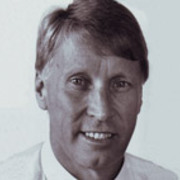
Lew Pryme
Lew Pryme was a pop singer whose trademark was his white blond bleached hair, and Elvis-style hip swinging. Pryme was born in the Taranaki town of Waitara. Later he began playing in skiffle bands, before musician Colin King put him up front as a singer in Taranaki dance/rock and roll band Colin King and the Harmonisers.
In 1964 Pryme moved to Auckland. There he combined a journalism job at Truth newspaper with nights working as compere and singer at the Crystal Palace dance-hall in Mt Eden. Pryme went on to compere at a number of cabaret venues.
He started to become widely known as a pop singer in the mid-sixties, after winning supporting slots for NZ tours by Britpop groups the Dave Clark Five and Herman's Hermits.
In 1966 Pryme appeared in Don't Let It Get You, a musical made by John O'Shea from Pacific Films. The cast included Howard Morrison, drummer Gary Wallace and a young Kiri Te Kanawa. The scene where a brylcreamed Pryme drives into a petrol station singing the song 'Come On' has become an iconic moment in Kiwi cinema. At the time, the Pryme and the Impacts song was given constant radio play by pirate radio station Radio Hauraki.
The same year Pryme released the one-off single 'A Star Is Born (A Love Has Died)' and made one of many appearances on much-watched pop music show C'mon, hosted by Peter Sinclair.
In 1968 musician Bryce Peterson composed the song 'Gracious Lady Alice Dee' for Pryme. It was banned by some radio stations, because of its supposed references to the drug LSD. Pryme followed it with Laura 'What's He Got That I Ain't Got', backed with 'There's A Kind Of Hush'.
By the end of the decade, Pryme's popularity had dropped. He released the single '(The Feat Of) Fantastic Fergie' and 'Deck Of Cards', before one last single in 1970: 'Give A Little, Take A Little/ Welcome To My World'.
Having worked and toured with other entertainment people from the early days of broadcasting, and witnessed the music business from the inside, Pryme decided he could do a better job.
He consequently set up his own agency to represent artists in the music scene, ‘discovering' and representing many new talents including future successes Tina Cross, Rob Guest, Derek Metzger and Mark Williams - who would later top the Kiwi charts. Pryme met Williams while judging at the 1972 National Battle of the Bands, later persuading the singer to go solo.
The eighties saw Pryme moving into the sports arena, following a controversial decision by the Auckland Rugby Union to appoint him as Executive Director. He combined entertainment and sport by introducing cheerleaders, rock ‘n roll acts and music to entertain the crowds. During this period he also co-hosted a regular radio rugby show with Tim Bickerstaff.
Pryme kept his private life private, telling few of the sporting people he worked with that he was gay. In the late eighties both he and his long time partner, were diagnosed with HIV/AIDS. His partner died on April 16 1990 and Pryme passed away a week later - still essentially ‘in the closet'.
During the last few months of his life, he had agreed to allow filmmakers Amanda Millar and Max Adams to make a documentary about his life, on the proviso that it be screened after his death.
The resulting film is Lew Pryme - Welcome to My World.